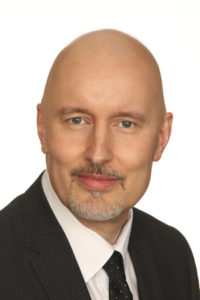Ikea to purchase a second wind farm in Alberta
This investment is part of the group’s global commitment to produce more renewable energy than it consumes by 2020. A few days ago, the Swedish giant, which has 12 stores in...
Trico Foundation was established in Calgary in 2008 by Eleanor and Wayne Chiu with funds from their successful development company, Trico Homes. Can you explain to us how the Foundation supports social innovation?
Our board mandate is to build capacity in social entrepreneurship to close gaps in society. If we look at the key aspects we’re involved with, the first one is the practitioners, the social entrepreneurs themselves, which can be divided into the start-up stage and the more mature stage of social entrepreneurship. Our start-up program is called the Alberta Social Entrepreneurship Support System (A.S.E.S.S.). We’ve created a toolkit that assembles insights from start-up leaders such as The Social Entrepreneur’s Playbook, Lean Startup, Crossing the Chasm and Blue Ocean Strategy. It’s now online as 12 worksheets that are available 24/7. We also have the Social EnterPrize of $100,000 for the more mature social entrepreneurs.
The second aspect we work with is the post-secondary institutions. They teach social entrepreneurship, they help kids nurture their own ideas, and do research. For example, one of our students, Alexandra Daignault, has created SolidariTEAS, which are hand-blended, high-quality teas that raise awareness about violence towards women, and raise conversations and fund programs to help address this issue.
And the third key aspect is The World of Social Entrepreneurship (TWOSE). 2016 was our second attempt at this. It attracted 13 social enterprise system supporters, including our local United Way, Calgary Economic Development (CED) and three post-secondary institutions, and led to the Calgary city council proclaiming September 16, 2016 as Social Entrepreneurship Day. We also shared our initial map of the ecosystem in a postcard format. For the ecosystem approach, the World of Social Entrepreneurship focused on Calgary. It showcases the most amazing examples of social entrepreneurship and facilitates local conversation, practitioner to practitioner.

Dan Overall
How’s it been going?
The things we’re most excited about, the thing we think is our greatest success, is A.S.E.S.S. The feedback we’re getting has just been extraordinarily exciting.
We also hosted the Social Enterprise World Forum in Calgary in 2013 along with four other national partners. This was the first time the Social Enterprise World Forum ever came to Canada, and it set a record for attendance with over 1,000 people from 30 countries, and 100 speakers.
Our ultimate goal is to get better at tying in to the needs of local entrepreneurs with specific expertise. If we can get more specific, eventually this will lead to a more sophisticated dialogue in Calgary from year to year, and the level of conversation will progress to match the local needs of the social entrepreneurs. For 2017, we are consulting some A.S.E.S.S. participants, some local social entrepreneurs and two students, to see who they would like us to invite. To give you an example of how this could work, this is the one we’re thinking of for Alexandra.
What’s up for you next?
One of the great challenges of the knowledge economy is confusing activity with accomplishment. Nowadays, with such a focus on innovation, there’s an emphasis on doing things quickly and being productive. We need to have the strength to stand back and say, “What is the data? What is it telling us?” If I say we did 20 projects last year, 50 this year, and are en route to 100 next year, those numbers mean nothing. You don’t just count people as they step through the door, but look at what worked and what didn’t work, and use that knowledge in the next iteration.
Envoyée tous les jeudis.
Suivez l’actualité de l’économie positive et engagée.
Trouvez l'emploi idéal.
Nos prochaines activités.